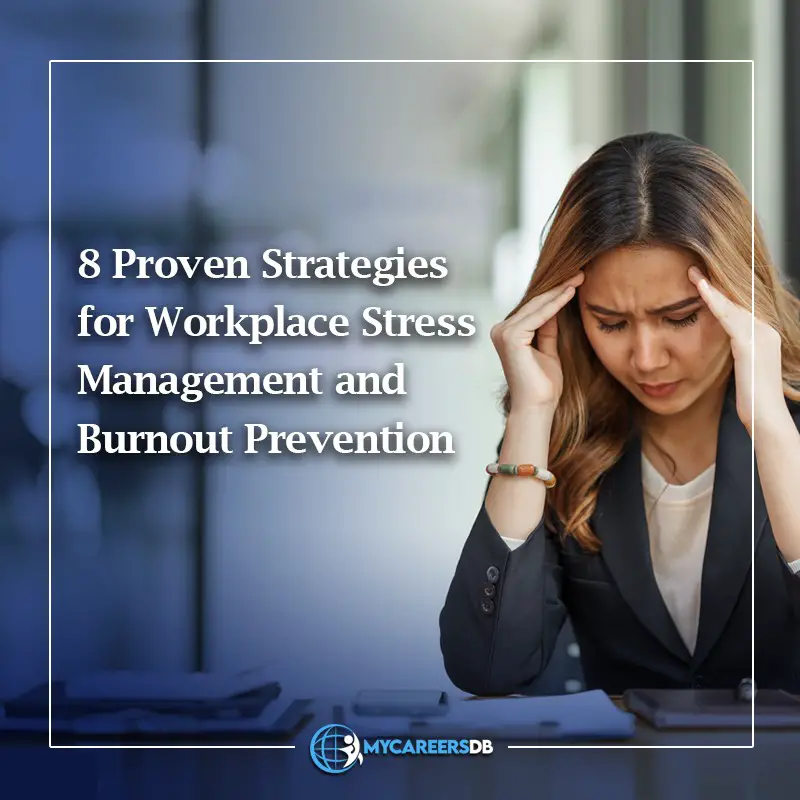Workplace stress and burnout are common issues that affect many employees. Work-related stress is one of the leading causes of employee absenteeism, turnover, and decreased productivity. Fortunately, there are many strategies that can help you manage workplace stress and prevent burnout. In this article, we'll explore some of the most effective techniques for maintaining your mental and physical well-being while on the job.
Prioritize Self-Care
One of the most important strategies for managing workplace stress and preventing burnout is to prioritize self-care. This means taking care of your physical and mental health by getting enough sleep, eating a healthy diet, exercising regularly, and engaging in activities that you enjoy outside of work. When you prioritize self-care, you'll have more energy and resilience to handle the challenges that come with your job.
Practice Time Management
Another effective strategy for managing workplace stress is to practice good time management. This means setting realistic goals and deadlines, breaking large projects into smaller tasks, and using tools like calendars and to-do lists to stay organized. By managing your time effectively, you can reduce the likelihood of feeling overwhelmed or stressed by your workload.
Develop Healthy Coping Mechanisms
When workplace stress does occur, it's important to have healthy coping mechanisms in place. This could include techniques like deep breathing, meditation, or exercise, all of which have been shown to reduce stress and promote relaxation. It's also important to know when to ask for help or support from your colleagues or manager if you're feeling overwhelmed.
Set Boundaries
Another effective strategy for preventing burnout is to set boundaries between your work and personal life. This could mean setting specific work hours, avoiding checking emails outside of those hours, or taking breaks throughout the day to recharge. By setting clear boundaries, you can create a healthier work-life balance and reduce the risk of burnout.
Communicate with Your Manager
It's important to have open communication with your manager about your workload and any challenges you may be facing. This can help them understand your needs and support you in finding solutions. If you're feeling overwhelmed or stressed, talk to your manager about your concerns and work together to find ways to manage your workload and responsibilities.
Take Breaks and Vacations
It's essential to take breaks throughout the day and vacations throughout the year to prevent burnout. Taking breaks can help you recharge and refocus, while vacations provide an opportunity to disconnect from work and recharge your energy. Don't feel guilty about taking time off - it's essential for your well-being and can ultimately make you a more productive and effective employee.
Seek Professional Help
If you're experiencing chronic stress or burnout symptoms, it's essential to seek professional help. This could mean talking to a therapist or counselor, seeking support from a mental health professional, or taking advantage of employee assistance programs offered by your employer. Remember that seeking help is a sign of strength and can help you get back on track to a healthier, happier work-life balance.
Incorporate Relaxation Techniques
Incorporating relaxation techniques into your daily routine can help you manage stress and prevent burnout. This could include techniques like yoga, mindfulness meditation, or progressive muscle relaxation. Experiment with different relaxation techniques to find what works best for you and incorporate them into your daily routine.
Managing workplace stress and preventing burnout requires a commitment to self-care and a willingness to set boundaries and prioritize your well-being. By incorporating these 8 strategies into your daily routine, you can maintain your mental and physical health while thriving in your career. Remember, a healthy, happy employee is a more productive and effective employee, so invest in yourself and your well-being to achieve success in the workplace.
For more career advice and tips, visit https://mycareersdb.com/blogs. Our blog offers valuable insights on how to navigate your career path, improve your skills, and achieve success. Whether you are a recent graduate or a seasoned professional, our articles provide practical tips and advice that can help you succeed in your career.
